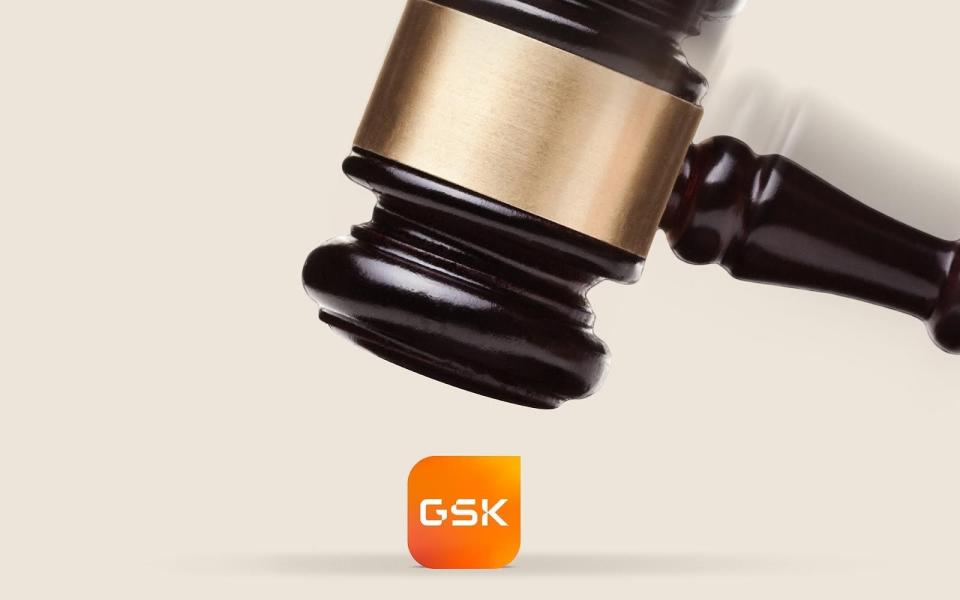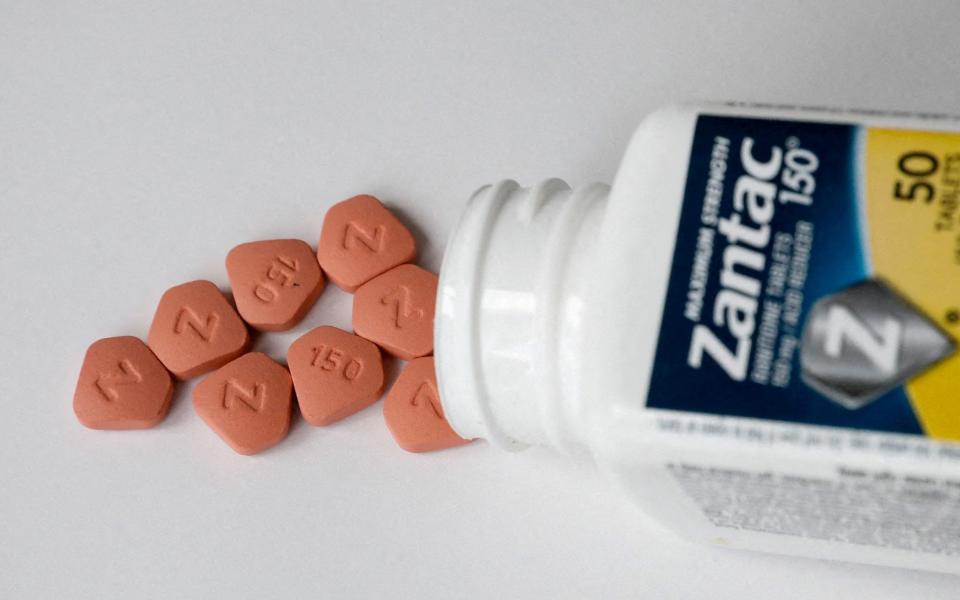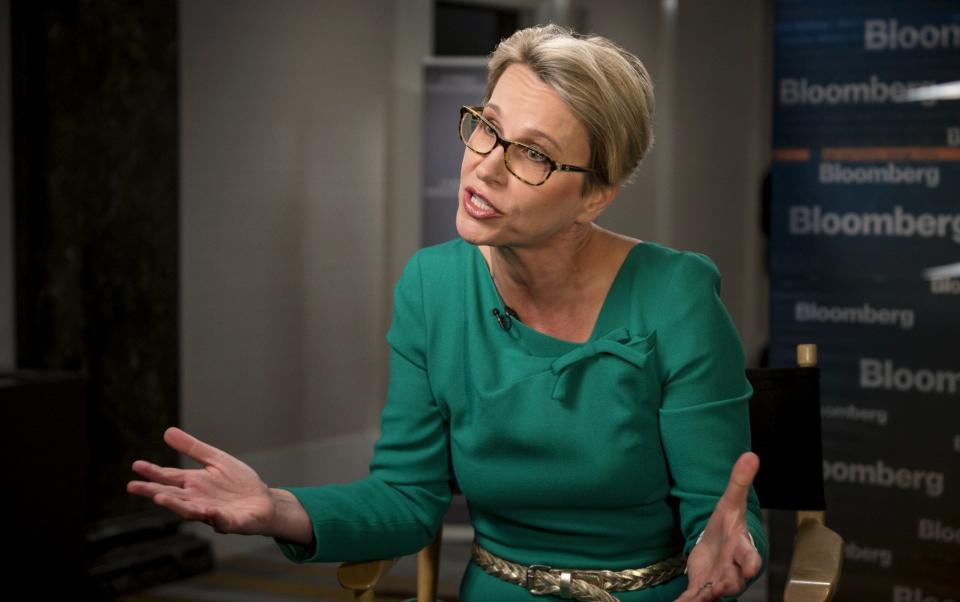The $3bn crisis casting a shadow over Dame Emma Walmsley’s GSK

As Dame Emma Walmsley stood up to deliver GSK’s latest set of results last month, she was brimming with confidence. This was “another excellent” period, she said, with sales and profits at the company booming.
Importantly, though, the British drugmaker was finally starting to deliver crucial share price gains – seen as an obsession of the chief executive.
For years, the company’s share price had been in the doldrums. Part of the reason was the threat of a potential multibillion-pound liability from its former heartburn drug Zantac.
But as Dame Emma laid out her trading update in May, it appeared that legal clouds were lifting. Following a series of settlements and court wins, a ruling in Delaware was expected to effectively end all of the lawsuits claiming that Zantac caused cancer. Most of the litigation related to the drug was in the state.
GSK was “definitely winning the battle” on Zantac, says one shareholder, “even if they hadn’t yet been able to declare victory in the war”. Shares had rallied by a fifth since the start of the year.
Within the space of a few weeks, the picture has dramatically shifted. In a shock decision, published earlier this month, Judge Vivian Medinilla, of the Delaware Superior Court, ruled that scientific evidence presented by cancer patients’ lawyers was admissible, paving the way for more than 70,000 cases to proceed.
The decision wiped almost £7bn off GSK’s value in one day and has cast a cloud over Dame Emma’s tenure.
Analysts described the Delaware ruling as a major surprise given a judge in Florida, facing the same question in 2022, found that scientific evidence about the carcinogenic nature of Zantac was based on “unreliable methodologies”.
GSK, alongside other drug giants wrapped up in the case, quickly filed an “interlocutory petition” in a bid to overturn the latest decision.
The hope is that the drugmakers will be able to avoid a wave of cases in Delaware, which would see both sides present their experts’ evidence to juries.
Brent Wisner, the LA lawyer who is leading the case for plaintiffs in Delaware, branded GSK’s move as “an extreme act of desperation”.
He argues the company is unlikely to succeed: “They’re hoping that for some reason, under this unique circumstance, the court will do something that essentially is never done.”
If Wisner is right and the cases proceed, then juries will be the ones making decisions.
Zantac was pulled from sale in 2019 after US watchdogs said they discovered “unacceptable levels” of probable cancer-causing ingredients in the medicine.

Plaintiffs point to a study that showed “extremely high levels” of cancer-causing compound NDMA in ranitidine, the generic name for Zantac, when it was heated.
In his arguments, Wisner and his team are looking to draw a line between Zantac and NDMA. They claim ranitidine degrades into NDMA, which Wisner says “everyone agrees causes cancer”.
GSK, meanwhile, argues that subsequent research by regulators in the US and EU, as well as other scientists, have failed to establish a causal association between their drug and cancer.
The company points to 16 scientific studies, including data from one million patients, which one insider says “shows no consistent or reliable evidence that ranitidine increases the risk of any cancer”.
A GSK insider says: “The plaintiff lawyers are being deliberately misleading on the facts and science, which show no evidence that ranitidine use causes cancer. In fact, the first case that went to court in Illinois was rejected on all counts by the jury.”
Wisner argues that the science showing there is no link to cancer is “complete nonsense”.
For GSK, huge risks lie ahead. The sheer huge number of Zantac claims filed in Delaware means the company is potentially facing a costly compensation payout if the cases do go to court and juries find against it. Analysts at Citi this month claimed GSK’s potential settlement costs could be around $3bn.
GSK’s association with Zantac is decades-long: ranitidine was first developed in the 1970s by a research lab run by what was then Glaxo. It became the world’s best-selling drug in the 1980s and generated a significant proportion of sales and profits for more than a decade.
The current crisis threatens to cast a shadow over Dame Emma’s legacy after years of efforts to turn around the British drugmaker.

Dame Emma, who has run GSK since 2017, was targeted by US hedge fund Elliott Management in 2021, which criticised years of share price underperformance and demanded she reapply for her job.
The British executive managed to ride out the storm by demerging GSK’s consumer brands into new company Haleon and focusing on pharmaceuticals.
Since then, Dame Emma has made huge leaps in winning around shareholders.
“Operationally, GSK has done a phenomenal job over the last two years,” says Dani Saurymper, an asset manager for Pacific Asset Management and a small GSK shareholder.
But the Zantac debacle risks undoing all that good work.
Barclays analyst Emily Field says: “If they go to trial in Delaware and they have a big loss, then that’s on her. Because that would be her decision to not settle.”
Investors are understood to be pushing for GSK to strike a settlement to avoid any further fallout from the Zantac cases, which some believe have dogged the company for too long.
Saurymper says shareholders “would like resolution and new investors are holding back from wanting to own GSK because of that potential unknown legal liability”.
Ketan Patel, a former long-term investor who now is a fund manager at a family office, says the cases risk becoming a distraction to management “at a time when they need to deliver on the pipeline”.
However, GSK is so far signalling it is keen to defend itself in court. An insider says the company is taking a “clear-sighted and determined approach to defend this litigation and act in the best interests of our shareholders”.
They add: “We have been talking to our shareholders and they understand our position.”
Wisner says he believes the risks for GSK are “exponentially rising”.
“There’s an opportunity, a chance, to get these cases settled, to put this chapter of the Zantac behind them. But as of now, they’ve yet to take that action and instead have chosen to spend countless dollars litigating cases against cancer victims.”
A drug that was developed to treat heartburn has now turned into a major headache for Dame Emma and GSK.

 Yahoo Finance
Yahoo Finance 